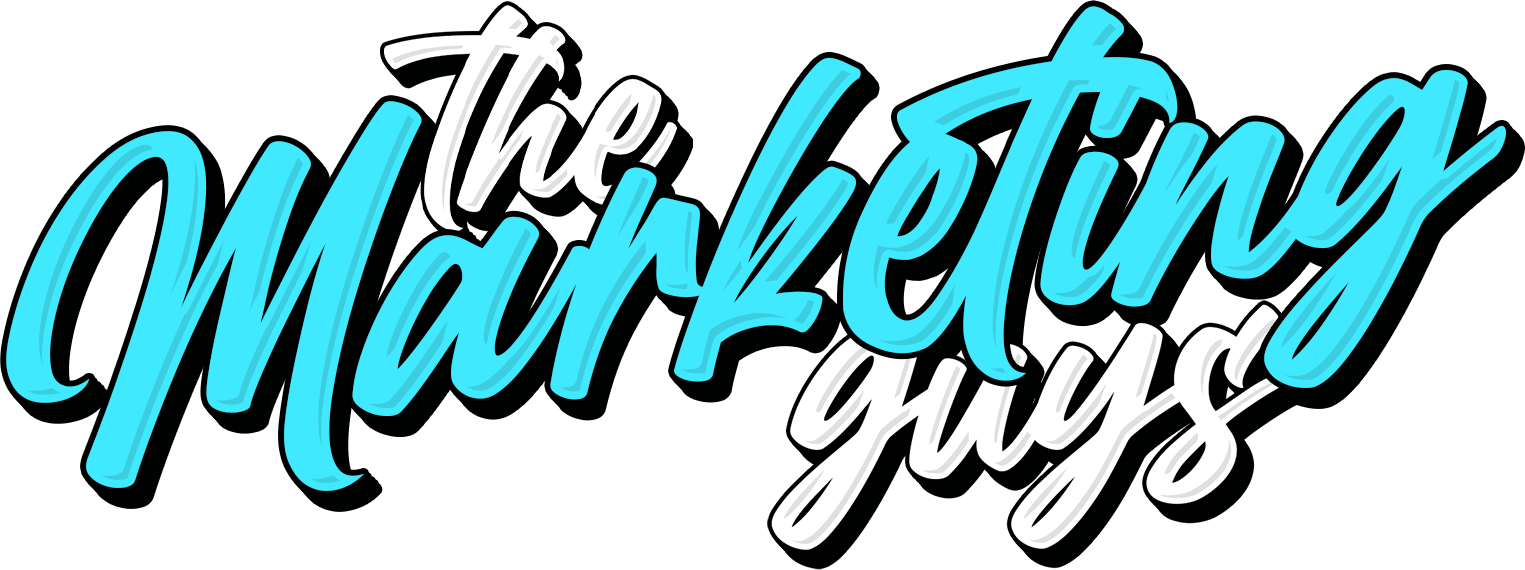Key Takeaways:
- Understanding the basics of website security is crucial for protecting your business online.
- Implementing strong passwords and regular updates can significantly reduce security risks.
- Regular backups and security plugins are your safety net against potential threats.
In the digital realm where small businesses strive to grow their brand and reach, there’s a shadow lurking in the background, ready to pounce at the first sign of vulnerability. Yes, we’re talking about the ever-present threat to website security. But fear not, dear reader, because The Marketing Guys is here to arm you with a no-bullshit guide to fortifying your online presence. So, buckle up as Dan and Jordan lead you through the murky waters of website security with their trademark blend of expertise and edgy humour.
Understanding the Threat Landscape
First things first, let’s get a lay of the land. The internet is a wild place, filled with cyber threats ranging from malware and phishing scams to brute force attacks. These aren’t just boogeymen meant to scare you; they’re real threats that can cause real damage to your business, reputation, and bank account.
The Pillars of Website Security
- Strong Passwords: Your First Line of Defense Let’s start with the basics. If your password is anything close to “123456” or “password,” you’re practically rolling out the red carpet for hackers. Strong, unique passwords for your website’s admin areas are non-negotiable. Use a mix of letters, numbers, and symbols, and consider a password manager to keep track of them all. It’s a simple step, but it’s your first line of defence.
- Regular Updates: Keeping the Walls Fortified Software updates are not just annoying notifications that pop up at inconvenient times. They are patches to security vulnerabilities that have been discovered since the last update. Regularly updating your website’s platform, plugins, and themes is akin to keeping the castle walls fortified against attackers.
- Backups: Your Safety Net Imagine if, despite all precautions, disaster strikes. A backup is your undo button; it’s your safety net. Regular backups ensure that should your site be compromised, you can restore it to its former glory without paying a king’s ransom. Whether it’s daily, weekly, or monthly, make backups a non-negotiable part of your security plan.
Security Plugins: The Knights in Shining Armor
Plugins aren’t just for fancy features on your site; they’re also critical in the battle against cyber threats. Security plugins can block malicious traffic, scan for malware, and monitor your site for suspicious activity. Think of them as knights in shining armour, standing guard while you focus on growing your business.
Wordfence Security
A comprehensive security plugin that offers firewall protection, malware scanning, and real-time threat detection. It’s designed to block malicious traffic and offers a web application firewall (WAF) that identifies and blocks harmful traffic to your site.
Sucuri Security
Offers a suite of security features including security activity auditing, file integrity monitoring, malware scanning, and a website firewall. It’s particularly strong in post-hack security actions and website security hardening.
Solid Security (Our favourite)
Solid Security offers features like customizable user login security policies, brute force protection, two-factor authentication, passkeys, and integration with Patchstack for enhanced security measures. These tools are designed to strengthen WordPress sites against common cyber threats, providing a comprehensive security solution.
All In One WP Security & Firewall
A user-friendly plugin that enhances your website’s security through features like login lockdown to prevent brute force attacks, security scanning, and a firewall to block suspicious activity.
Jetpack
Known for a wide range of features, its security capabilities include downtime monitoring, protection against brute force attacks, secure login, and malware scanning.
These plugins offer different strengths to address various security concerns, providing WordPress site owners with tools to protect against cyber threats effectively.
SSL Certificates: Sealing the Gates
An SSL certificate is like the moat around your castle. It encrypts data between your website and your visitors, making it much harder for hackers to intercept sensitive information. Plus, it boosts your SEO and builds trust with your visitors. In the age of online security, an SSL certificate isn’t just nice to have; it’s a must.
In the end, website security might seem like a daunting task, especially for small businesses with limited resources. But with the right knowledge and tools, it’s more than manageable. By focusing on strong passwords, regular updates, backups, security plugins, and SSL certificates, you can create a robust defence system for your online presence.
Advanced Strategies for Bulletproofing Your Online Presence
Continuing our crusade against the dark arts of cyber threats, let’s delve into the advanced strategies that can bolster your website’s security. Dan and Jordan, your trusty guides in the realm of digital fortification, are back with more insights. This time, we’re looking beyond the basics to ensure your business’s online presence is as secure as Fort Knox.
Regular Security Audits: Know Thy Enemy
The first step in any good defence strategy is knowing what you’re up against. Regular security audits can uncover vulnerabilities in your website before they become gateways for hackers. Tools like security scanners can automate this process, highlighting areas that need your attention. Think of it as doing reconnaissance on your digital landscape.
Firewalls: The Castle Walls
Firewalls serve as the robust walls around your digital castle, monitoring and controlling incoming and outgoing network traffic based on an applied rule set. A web application firewall (WAF) specifically protects your website by filtering and monitoring HTTP traffic between a web application and the Internet. It helps protect against common attacks such as cross-site scripting (XSS) and SQL injection.
User Access Controls: Know Your Knights
Not everyone needs the keys to the kingdom. Implementing strict user access controls ensures that only the right people have access to sensitive areas of your website. Use principles like the least privilege, ensuring users have only the access they need to perform their roles. This minimizes the risk of internal threats and accidental breaches.
Two-Factor Authentication (2FA): The Double Lock
Adding an extra layer of security with two-factor authentication (2FA) is like putting a double lock on your door. Even if a password is compromised, 2FA requires a second verification form, making unauthorised access significantly more difficult. Encourage or enforce 2FA for all users, especially those with administrative privileges.
Content Delivery Networks (CDNs): Speed and Security
CDNs not only improve your website’s load times around the globe but also enhance security. They can help absorb the impact of DDoS attacks, which attempt to overwhelm your site with traffic. By distributing your traffic across a network of servers, CDNs act as a buffer, protecting your site from being taken down by an onslaught.
Incident Response Plan: Your Battle Strategy
Even the best-defended fortresses can fall. Having an incident response plan in place ensures you can act swiftly and effectively if your website is compromised. This plan should outline the steps to take in the event of a breach, including how to isolate the breach, communicate with stakeholders, and restore services.
In the vast and ever-evolving battlefield of website security, staying informed and prepared is your best defence. By implementing these advanced strategies, alongside the basics covered earlier, you can significantly reduce your website’s vulnerabilities and protect your business from cyber threats.
Remember, website security is not a one-time task but an ongoing battle. Regular updates, vigilance, and a proactive approach are key to keeping your digital presence secure. With Dan and Jordan’s expert guidance and a bit of dark, edgy humour to keep things interesting, securing your website doesn’t have to be a daunting task.
By fortifying your website with these advanced security measures, you’re not just protecting your business; you’re ensuring its growth and longevity in the digital age. Stay secure, stay savvy, and let The Marketing Guys be your beacon in the dark, guiding you towards a safer online future for your small business.

